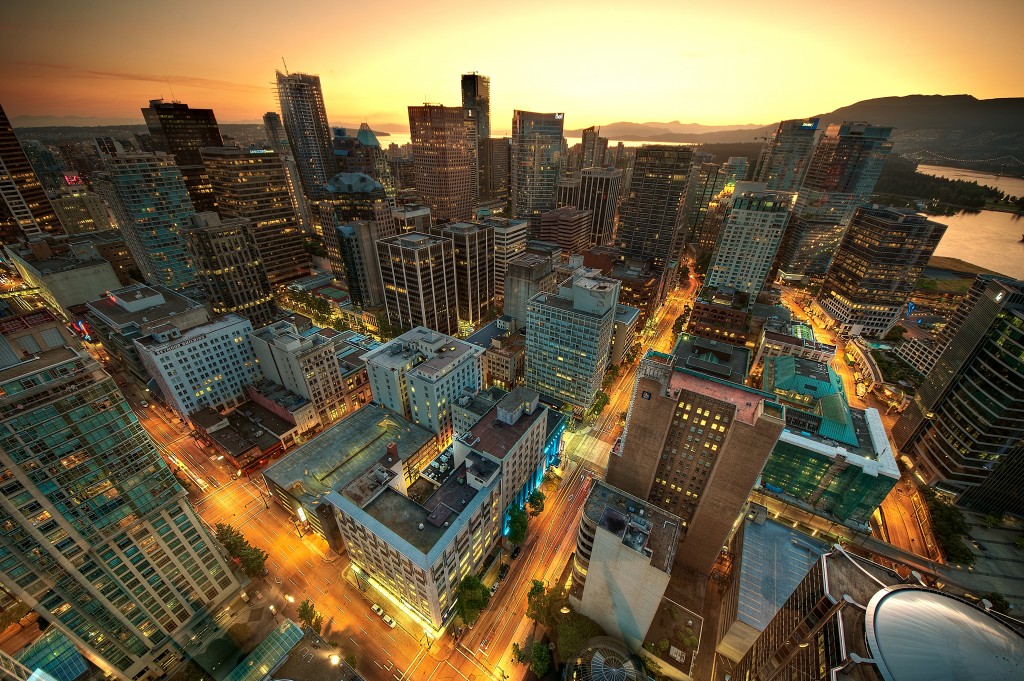
How Vancouver is leading the way in welcoming and supporting refugees.
Our world has a refugee crisis.
Thousands upon thousands of people are fleeing violence and political unrest in an attempt to stay alive. For some, the journey to save their lives has ended in tragedy and death, as the story of young Alan Kurdi revealed to the world in September 2015. Attention has been brought to the refugee crisis in the most tragic of ways.
Global headlines reveal a near continuous wave of refugees out of conflict zones, most notably in Syria. Meanwhile European countries have struggled to provide a unified response, both in attitude and practical solutions. The United States and Canada, while less directly affected by the crisis, have struggled too. On both sides of the 49th parallel the issue has more often been politicized in election rhetoric than responded to in tangible ways. Cascadians are not immune from prejudice and xenophobia, but one part of the region is showing that a response of welcome and hospitality is possible.
For many leaders and citizens in the greater Vancouver area, dire headlines and political rhetoric hasn’t created a negative response to the refugee crisis. In fact, prior to an increase in news reports that drove interest in the topic, leaders, including many churches and other religious groups, have been bringing awareness, raising money, and giving time towards sponsoring refugee families to come to Vancouver.
Welcoming History
Vancouver has a long history of welcoming refugees. From my own Mennonite ancestors in the 1920’s fleeing the aftermath of the Russian Revolution, to the Vietnamese escaping conflict in the 60’s and 70’s, to Iranians and Iraqis seeking freedom in the past decade, refugees have found welcome and support from Vancouverites. And while not totally free from obstacles or controversy, the ethnic and cultural diversity of the region has led to a general openness to accepting and supporting refugees.
Currently, Vancouver’s mayor, Gregor Robertson, is actively pursuing the welcome and support of refugees in Vancouver both through local efforts to foster collaboration and response between many government and private entities. A highlight of these efforts has seen the building of a refugee welcome centre, a state-of-the-art facility that will house and support newcomers to Vancouver, opening in spring 2016. Additionally, the firm commitment to refugee support from Canada’s government and Prime Minister, Justin Trudeau, has created a context into which refugees will continue to arrive in Vancouver for years to come. Vancouver, clearly, is a refugee-friendly city.
Long before refugees were making daily headlines, churches have been proactive in addressing refugees in Vancouver. Churches offering tangible refugee support have been influential in creating and sustaining Vancouver refugee-friendly context. For years churches have proactively shown love and sacrifice in countless ways, establishing themselves as central to providing hospitality to refugees.
In 1998, a group from Grandview Calvary Baptist Church established an organization that provides housing dedicated to refugee claimants. Now operating as Kinbrace (combining the words “kinship” and “embrace”), it was the first of its kind in British Columbia. Working with a diverse partnership of community and religious organizations, Kinbrace offers housing with the goal of building community based around values of welcome, trust, mutual transformation, celebration, and prayer. Such proactive engagement in the past 15 plus years has helped prepare Vancouver in being ready to welcome refugees today.
Churches Step Up
One of the obstacles to welcoming refugees in the region has been the argument that welcoming refugees will detract resources from other worthy causes. The government needs to help Canadians first, the critique suggests. Several Vancouver churches have modeled a response to this resistance rooted in concrete expressions of love and sacrifice which place the financial cost squarely on private citizens, not local governments.
Across the Vancouver area churches have been among the first to privately sponsor and welcome refugees in recent months due to their commitment to raise money and sponsor refugee families through what can be a gruelling process of navigating the bureaucracy that accompanies a refugee claim. In the current wave of refugee arrivals, it was Peace Mennonite Church (Richmond, BC) that welcomed the first Syrian family to the Vancouver area as a direct result of their advocacy and financial support. And this is just one such story among many. (Long-time Vancouver journalist, Flynn Ritchie, has been documenting several of these stories through the website, Church For Vancouver.)
An aspect often unnoticed or underreported in the popular media coverage of the refugee crisis is the long-term implications and needs that refugees have. Images of emotional reunions upon arrival are followed by the hard reality of months and years of adjustment to a new culture. It’s here that churches are modeling the long-term virtue of hospitality. Churches that sponsor refugee claimants are required to provide one-year of finances to the refugees to support their settlement into Vancouver. Additionally, churches provide practical support such as clothing, food, transportation, education, language training, and childcare. Where organizations like Kinbrace can assist in offering some of these supports formally, it’s through countless hours of building relationships and spending time with refugees that members of Vancouver churches have been making a difference in helping refugees adjust to daily life in Vancouver.
The global refugee crisis has clearly impacted Cascadia, as it has all of North America. Vancouver citizens, including many Vancouver churches, have proactively responded through displays of love and sacrifice. There is a culture of hospitality so critical to people in need. Where many responses to the refugee crisis have been uncertain and at times quite negative, the persistence and care from Vancouver citizens has shown Vancouver to truly be a refugee-friendly city.

